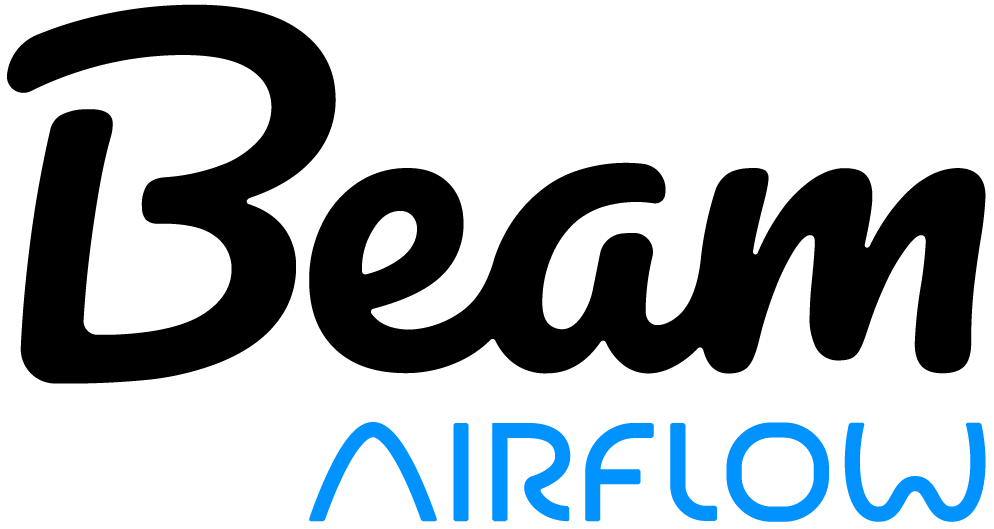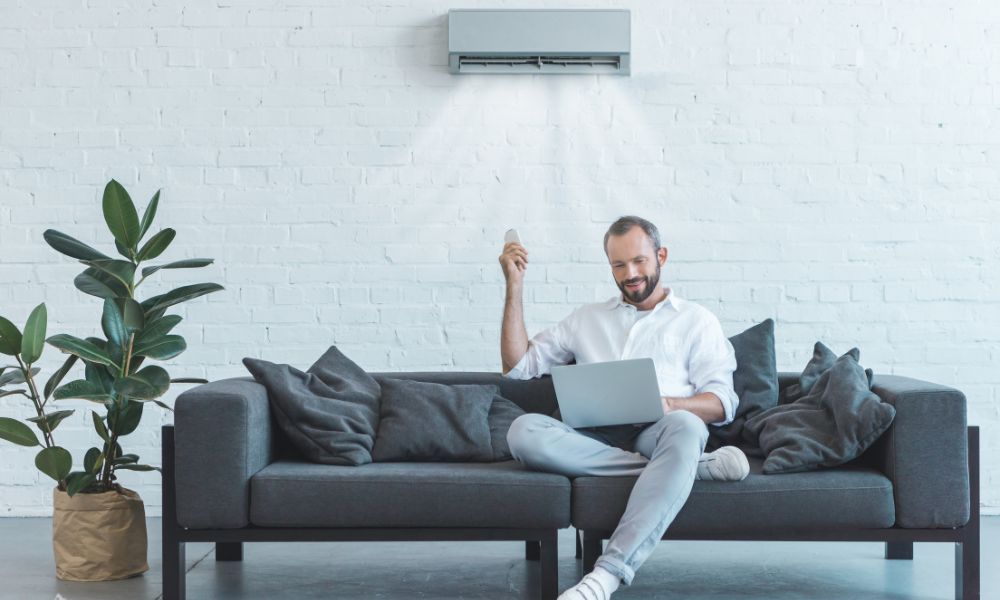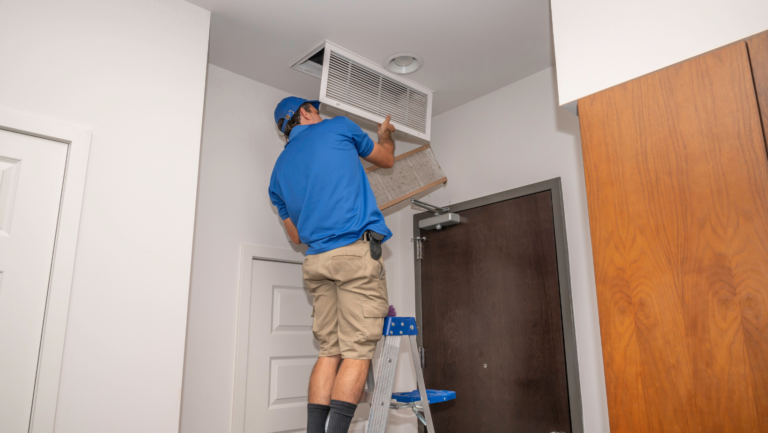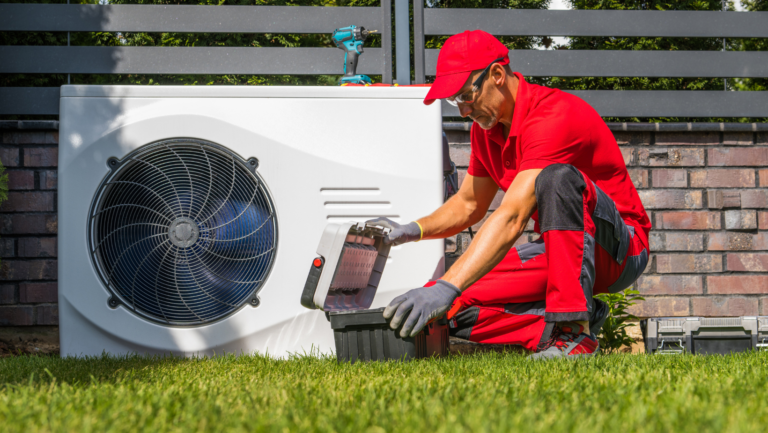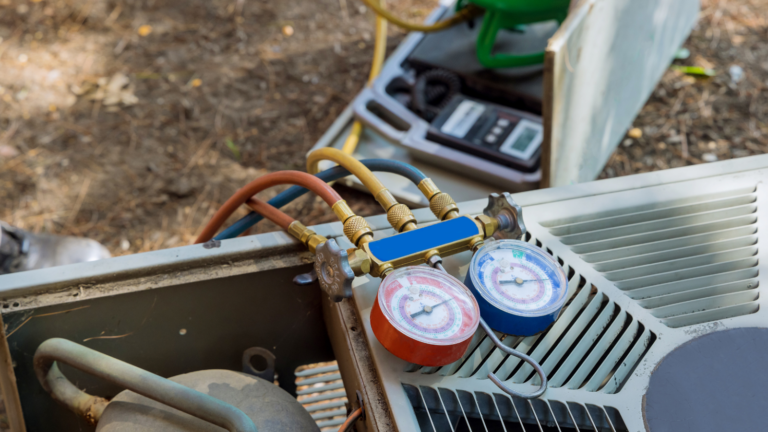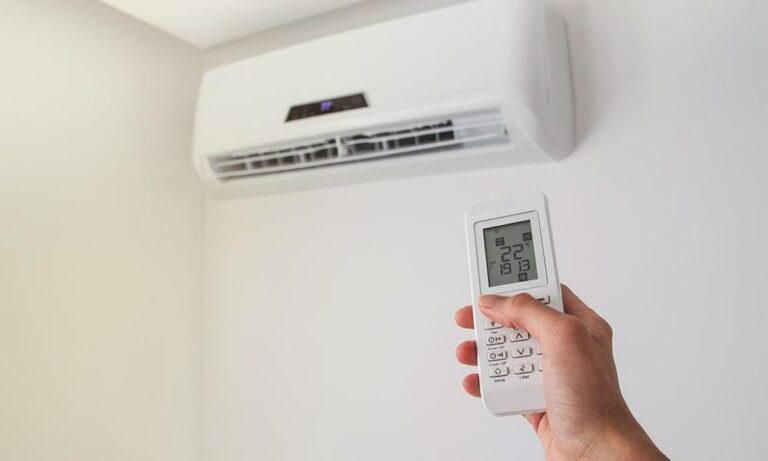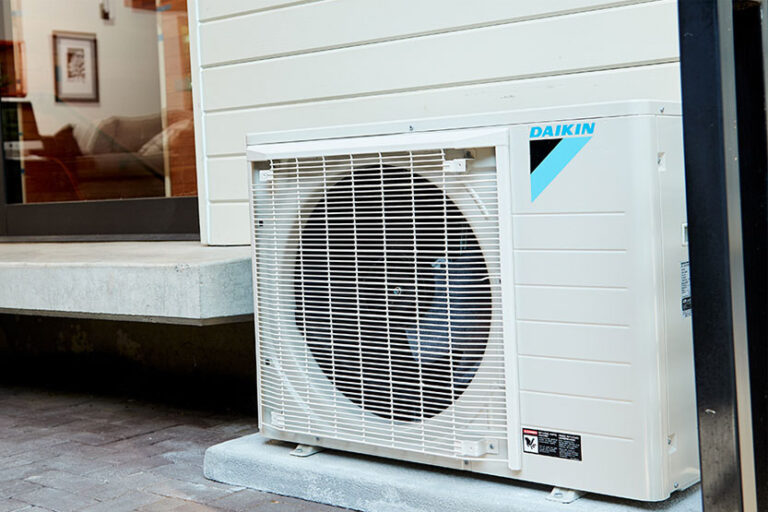How Often Should HVAC Filters Be Changed?
When was the last time you thought about your HVAC filters? If you’re like most homeowners, it’s probably been a while. Yet, these unsung heroes play a crucial role in maintaining a comfortable and healthy home.
Your HVAC filters are more than just a component of your heating and cooling system; they are the first line of defense against airborne contaminants. They trap dust, pollen, pet hair, and even mold spores, ensuring that the air circulating in your home is clean and safe to breathe. Indoor air quality is a significant concern, especially for those with respiratory conditions. A clean HVAC filter traps airborne particles, preventing them from recirculating through your home.
Understanding how often you should change your air filters can save you money, improve your indoor air quality, and extend the life of your HVAC system. Let’s dive into why these filters are so important and how often you should change them.
Understanding HVAC Filters
The general rule of thumb is to change your air filter every 30 to 90 days. However, this can vary based on several factors, including the type of HVAC air filter you use and the specific needs of your household.
Types of HVAC Filters
Fiberglass Filters: These are the most affordable and common filters but need frequent replacement due to their shorter lifespan and lower efficiency. Typically, it lasts 30 days.
Pleated Filters: Offering better filtration, pleated filters are more efficient at trapping dust and allergens. This can last up to 90 days.
HEPA Filters: High-Efficiency Particulate Air (HEPA) filters are excellent for trapping tiny particles, including mold spores and pet dander, making them ideal for homes with allergy sufferers. This type generally lasts between 6 to 12 months.
Electrostatic Filters: These filters use an electric charge to attract and hold airborne particles. They are washable and reusable, providing a long-term solution with proper maintenance. With proper care, these can last for several years.
The Minimum Efficiency Reporting Value (MERV) rating system measures a filter’s ability to capture particles. The higher the MERV rating, the more particles the filter can trap. It is said that the higher MERV ratings mean better filtration but can also restrict airflow if your system isn’t designed for them. It’s important to choose a filter that balances filtration efficiency with your system’s capacity.
Factors Affecting Filter Change Frequency
Understanding how often to change your HVAC filters involves considering various factors that influence the accumulation of dust and contaminants. Here are some key factors that can help you determine the best schedule for changing your filters.
Household Size and Occupancy
The number of people living in your home significantly affects how often you should change your air filters. More residents mean more dust, dirt, and other airborne particles that can quickly clog a filter. For larger families, it’s advisable to check and possibly change your HVAC filters more frequently. Increased foot traffic and activity levels generate more airborne contaminants, necessitating more frequent filter replacements to maintain indoor air quality.
Presence of Pets
Pets are lovely companions but can greatly impact your air quality. Pet hair and dander are common airborne contaminants that quickly clog HVAC filters. If you have pets, especially those that shed heavily, you should check your filters monthly. Changing air filters every 30 to 60 days can help keep your HVAC system running efficiently and improve the air quality in your home.
Allergies and Respiratory Conditions
For households with allergy sufferers or individuals with respiratory conditions, maintaining clean air is crucial. A dirty filter can exacerbate health issues by circulating allergens and pollutants. In such cases, consider changing your HVAC air filter every 20 to 45 days. Using filters with a higher MERV rating can also help capture smaller particles that trigger allergies and respiratory problems.
Indoor Air Quality
Smoking indoors significantly deteriorates air quality and clogs filters faster. Tar and smoke particles are particularly difficult to filter out and can reduce your filter’s efficiency. Frequent cooking, especially frying, can release grease and smoke into the air, which can clog filters. Activities like burning candles or using fireplaces also contribute to filter buildup.
Climate and Seasonal Changes
Humidity levels can affect how quickly filters become clogged. In humid climates, mold and mildew can grow on filters, necessitating more frequent changes. Conversely, dry climates might see more dust accumulation. During peak seasons, such as summer for cooling systems and winter for heating systems, your HVAC system works harder and filters need to be changed more frequently. During these times, consider checking your filters monthly.
Construction and Renovation Activities
Home renovation or construction projects can significantly increase the amount of dust and debris in the air. This can quickly overwhelm your HVAC filters, reducing their efficiency. During and after construction activities, it’s wise to change your filters more frequently, sometimes even bi-weekly, to ensure your HVAC system isn’t clogged with construction dust and debris.
Signs It’s Time to Change Your HVAC Filter
Recognizing when it’s time to change your HVAC filter is essential for maintaining your system’s efficiency and your home’s air quality. A visual inspection is a simple yet effective way to determine the condition of your filter. When checking your filter, look for visible dirt and debris buildup. A clean filter should appear almost white or slightly off-white, while a dirty filter will be noticeably gray or brown with visible particles.
Another clear sign that your HVAC filter needs changing is decreased efficiency of your heating and cooling system. If you notice reduced airflow through your vents or your system seems to be working harder to maintain the desired temperature, it could be due to a clogged filter. This reduced efficiency often leads to increased energy bills as your system consumes more energy to compensate for the restricted airflow.
Unusual odors emanating from your HVAC system can also indicate that it’s time to change your filter. Dirty filters can harbor mold, mildew, and other contaminants that produce unpleasant smells. If you notice musty or stale odors when your system is running, it’s likely that the filter is clogged with debris and needs to be changed.
How to Change Your HVAC Filter
Changing your HVAC filter is a straightforward task that can significantly improve your system’s efficiency and indoor air quality.
First, it’s essential to choose the right filter for your HVAC system. Start by matching the filter type to your system’s specifications. Consult your HVAC system’s manual or check with the air filter manufacturers to determine the best type for your needs. Next, understanding filter sizes is essential. Measure your existing filter or check the size information typically printed on the filter frame. This will help you find a suitable replacement that fits perfectly into your HVAC system.
Step-by-Step Guide
- Safety Precautions: Before you begin, ensure your HVAC system is turned off to avoid any accidents or damage. If your system has an emergency switch or circuit breaker, use it to cut the power.
- Proper Removal: Locate your HVAC filter. It’s usually found in the air handler, furnace, or return air vent. Carefully slide out the old filter, making sure not to shake it to avoid releasing trapped dust and debris.
- Installation: Take your new filter and verify that the airflow arrows on the filter align with the direction of airflow in your HVAC system. Insert the filter into the slot, ensuring it fits snugly without bending or crumpling.
Properly disposing of your old filters is important for both health and environmental reasons. Most used filters can be thrown away with your regular household waste. However, consider the following environmental considerations to reduce your impact.
If possible, check if your local waste management facility offers recycling programs for HVAC filters. While not all filters are recyclable, some facilities might accept certain types, especially those with cardboard frames. Avoid burning used filters, as this can release harmful pollutants into the air.
Maintaining Optimal HVAC Performance
To keep your HVAC system running smoothly, establish a regular maintenance schedule. Set up reminders to check and change your filters at recommended intervals. Incorporate filter changes into your routine maintenance tasks, such as cleaning vents and inspecting ductwork, to ensure your system remains efficient and your indoor air quality stays high.
While regular filter changes are vital, scheduling professional HVAC inspections is equally important. Regular check-ups by HVAC companies help identify potential issues before they become costly problems. During these inspections, professionals will thoroughly examine your system, clean essential components, and make necessary adjustments, ensuring your HVAC system operates at peak performance.
Benefits of Regular Filter Changes
One of the primary benefits of changing your HVAC filters regularly is improved air quality. Clean filters effectively reduce allergens, pollutants, and airborne dust, leading to a healthier indoor environment.
Regular filter changes also enhance your HVAC system’s efficiency. Clean filters allow for better airflow, reducing the workload on your system. This results in significant energy savings and helps extend the lifespan of your HVAC equipment. By maintaining filter efficiency, you ensure your system runs smoothly and effectively, even during peak usage periods.
Lastly, regularly changing your HVAC filters can lead to substantial cost savings. Clean filters reduce the need for frequent HVAC repairs by preventing issues caused by clogged or dirty filters. Additionally, an efficient system uses less energy, which translates to lower energy bills. By investing in regular filter maintenance, you can save money on both repairs and energy costs, making it a smart and economical choice for homeowners.
Common Misconceptions About HVAC Filters
A prevalent misconception about HVAC filters is that higher MERV ratings are always better. While it’s true that filters with higher MERV ratings can trap smaller particles, this doesn’t necessarily mean they are the best choice for every HVAC system. Filters with very high MERV ratings can restrict airflow if your system isn’t designed to handle them, potentially leading to decreased efficiency and increased strain on the fan motors.
Another common myth is that HVAC filters don’t need frequent changes. Some believe that filters can last an entire season or longer without replacement, but this can lead to poor air quality and reduced system performance. Dirty filters not only compromise indoor air quality by allowing more airborne contaminants to circulate but also force the HVAC system to work harder, leading to higher energy bills and potential damage over time.
Keep Your HVAC System Running Smoothly
Changing your HVAC filters regularly is a simple yet important task that ensures your heating and cooling system operates efficiently, maintains optimal indoor air quality, and reduces your energy bills. By understanding the types of filters, recognizing the signs of a worn-out filter, and adhering to a consistent maintenance schedule, you can prolong the life of your HVAC system and enjoy a healthier living environment.
Don’t overlook the importance of professional inspections to catch potential issues early. Take action today to keep your home comfortable and your HVAC system in top shape.
